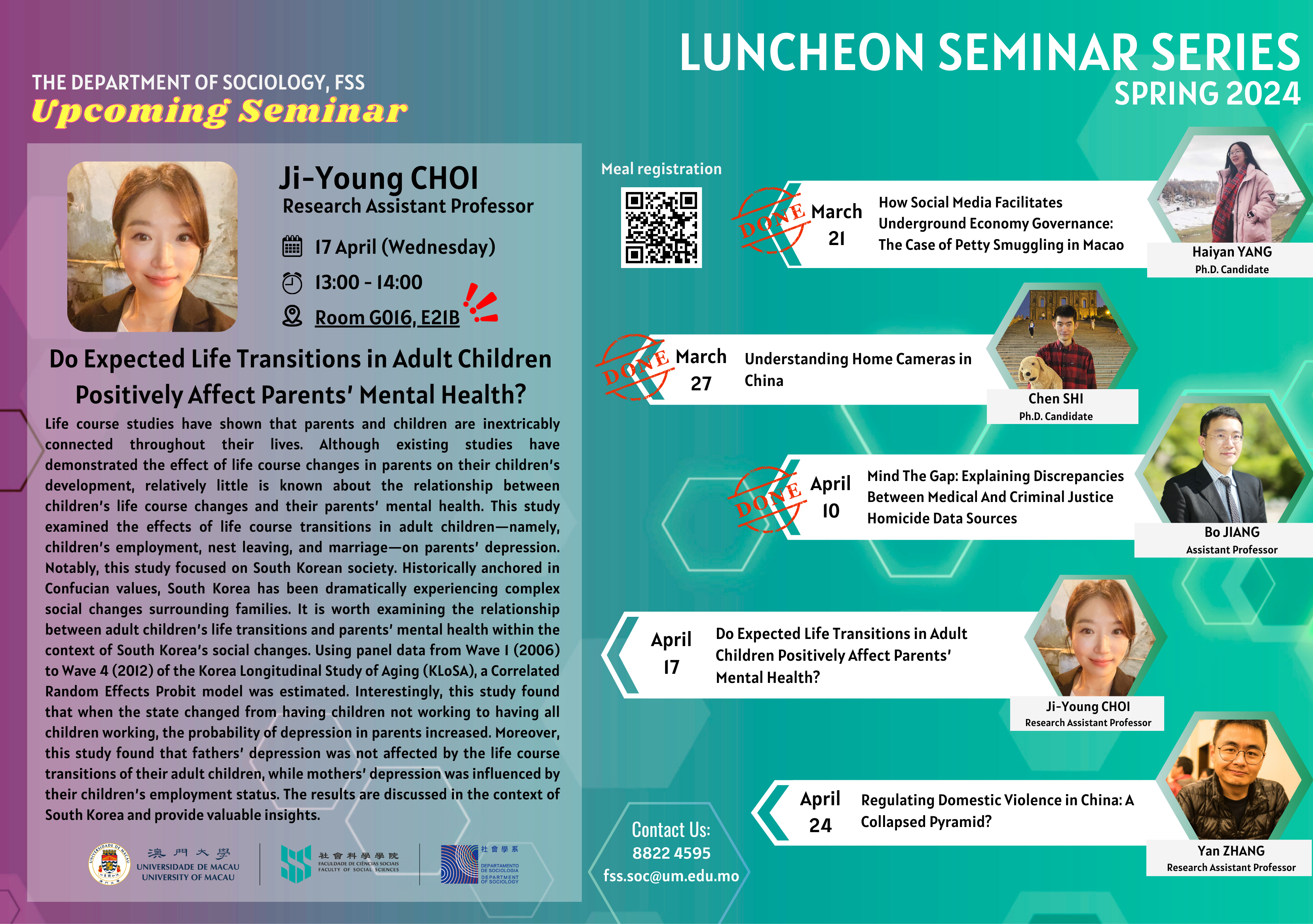
Date: April 17
Time: 1:00 pm – 2:00 pm
Speaker: Dr. Ji-Young CHOI
Venue: E21B-G016
Organizer: Department of Sociology
Phone: 8822 4595
Life course studies have shown that parents and children are inextricably connected throughout their lives. Although existing studies have demonstrated the effect of life course changes in parents on their children’s development, relatively little is known about the relationship between children’s life course changes and their parents’ mental health. This study examined the effects of life course transitions in adult children—namely, children’s employment, nest leaving, and marriage—on parents’ depression. Notably, this study focused on South Korean society. Historically anchored in Confucian values, South Korea has been dramatically experiencing complex social changes surrounding families. It is worth examining the relationship between adult children’s life transitions and parents’ mental health within the context of South Korea’s social changes. Using panel data from Wave 1 (2006) to Wave 4 (2012) of the Korea Longitudinal Study of Aging (KLoSA), a Correlated Random Effects Probit model was estimated. Interestingly, this study found that when the state changed from having children not working to having all children working, the probability of depression in parents increased. Moreover, this study found that fathers’ depression was not affected by the life course transitions of their adult children, while mothers’ depression was influenced by their children’s employment status. The results are discussed in the context of South Korea and provide valuable insights.

